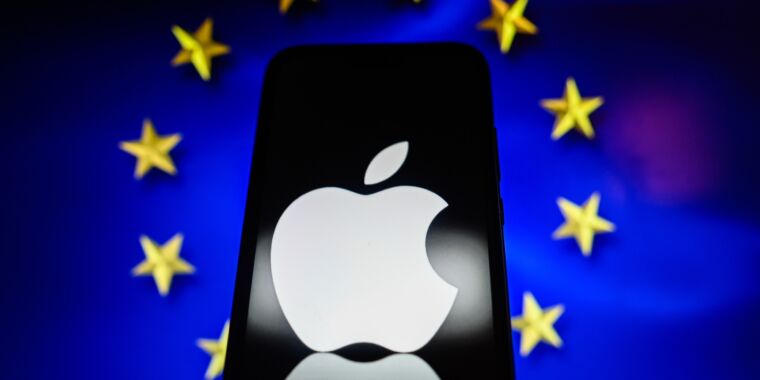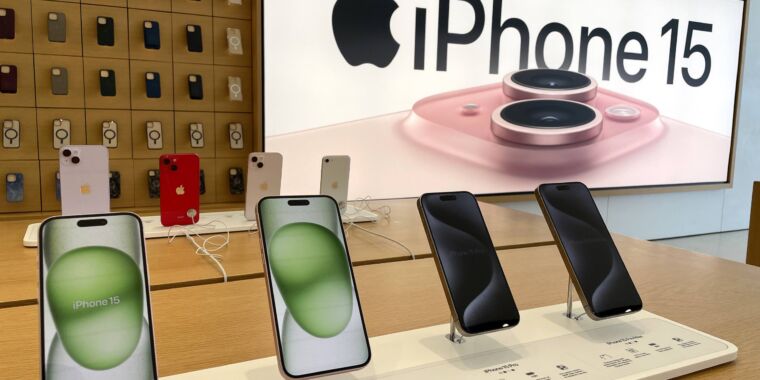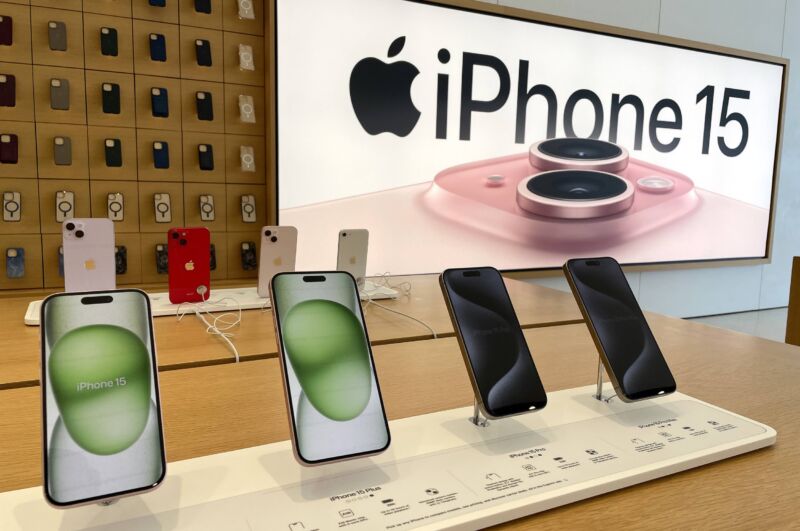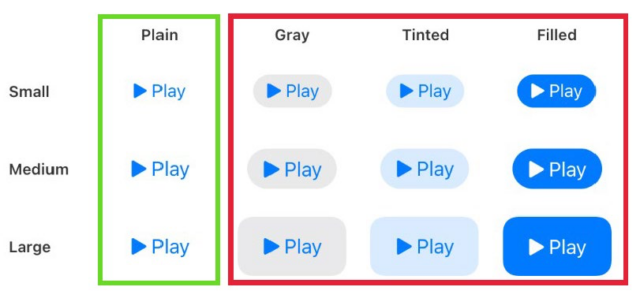EU says Apple violated app developers’ rights, could be fined 10% of revenue
Apple and the Digital Markets Act —
EU: Apple fees and rules stop devs from steering users to other sales channels.
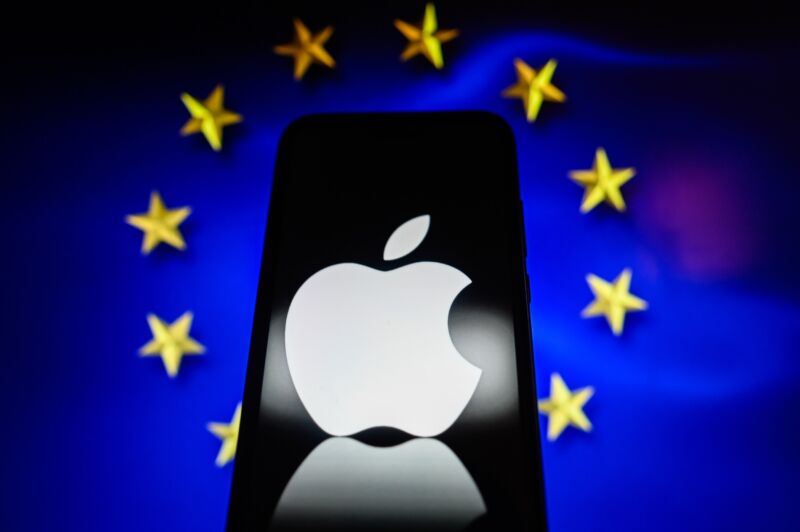
Getty Images | SOPA Images
The European Commission today said it found that Apple is violating the Digital Markets Act (DMA) with App Store rules and fees that “prevent app developers from freely steering consumers to alternative channels for offers and content.” The commission “informed Apple of its preliminary view” that the company is violating the law, the regulator announced.
This starts a process in which Apple has the right to examine documents in the commission’s investigation file and reply in writing to the findings. There is a March 2025 deadline for the commission to make a final ruling.
The commission noted that it “can impose fines up to 10 percent of the gatekeeper’s total worldwide turnover,” or up to 20 percent for repeat infringements. For “systematic infringements,” the European regulator could respond by requiring “a gatekeeper to sell a business or parts of it, or banning the gatekeeper from acquisitions of additional services related to the systemic non-compliance.”
Under the DMA, developers must be free “to inform their customers of alternative cheaper purchasing possibilities, steer them to those offers and allow them to make purchases,” the commission said. But Apple’s business terms prevent that, the commission found.
Apple’s rules prevent developers from providing pricing information within their apps and from communicating “with their customers to promote offers available on alternative distribution channels,” the commission said. Apple lets developers include an in-app link that redirects users to a website, but this “link-out process is subject to several restrictions imposed by Apple that prevent app developers from communicating, promoting offers and concluding contracts through the distribution channel of their choice,” the commission said.
Excessive fees
Apple was further accused of charging excessive fees. The commission said that Apple is allowed to charge “a fee for facilitating via the App Store the initial acquisition of a new customer by developers,” but “the fees charged by Apple go beyond what is strictly necessary for such remuneration. For example, Apple charges developers a fee for every purchase of digital goods or services a user makes within seven days after a link-out from the app.”
Apple says it charges a commission of 27 percent on sales “to the user for digital goods or services on your website after a link out… provided that the sale was initiated within seven days and the digital goods or services can be used in an app.”
We contacted Apple today and are waiting for a response. In a statement quoted by the Associated Press, Apple said that during the past few months, it “made a number of changes to comply with the DMA in response to feedback from developers and the European Commission” and will “continue to listen and engage” with regulators.
“We are confident our plan complies with the law and estimate more than 99 percent of developers would pay the same or less in fees to Apple under the new business terms we created,” Apple was quoted as saying. “All developers doing business in the EU on the App Store have the opportunity to utilize the capabilities that we have introduced, including the ability to direct app users to the web to complete purchases at a very competitive rate.”
As reported on Friday, Apple is delaying its Apple Intelligence AI tools and other features in the EU because of what it called “regulatory uncertainties brought about by the Digital Markets Act.”
EU also probes Apple “Core Technology Fee”
The commission today also announced it is starting a separate investigation into Apple’s “contractual requirements for third-party app developers and app stores,” including its “Core Technology Fee.” Apple charges the Core Technology Fee for app installs, whether they are delivered from Apple’s own App Store, from an alternative app marketplace, or from a developer’s own website. The first million installs each year are free, but a per-install fee of €0.50 applies after that.
The commission said it would investigate whether the Core Technology Fee complies with the DMA. This investigation will also probe “Apple’s multi-step user journey to download and install alternative app stores or apps on iPhones,” and the eligibility requirements imposed on developers before they are allowed to offer alternative app stores or distribute apps from the web on iPhones.
The probe includes Apple’s requirement that developers have “membership of good standing” in the Apple Developer Program in order to benefit from the alternative distribution methods required by the DMA. The commission said it is also probing the “checks and reviews put in place by Apple to validate apps and alternative app stores to be sideloaded.”
EU says Apple violated app developers’ rights, could be fined 10% of revenue Read More »
